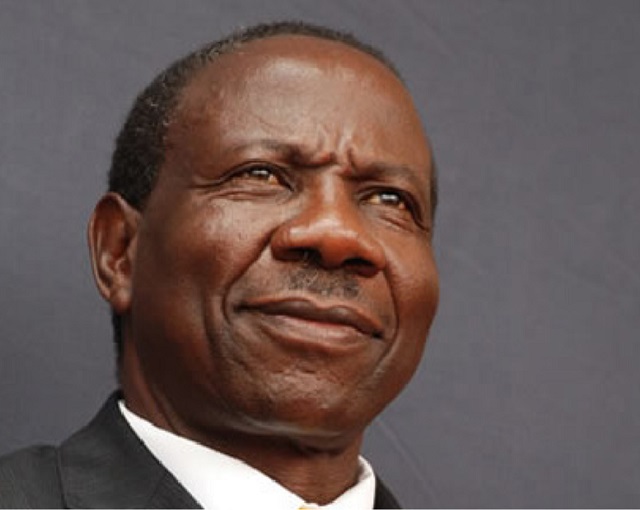
Economists suggest that the government needs to balance investment in development and productive sectors
Kampala, Uganda | ISAAC KHISA | Uganda government plans to borrow Shs8.73 trillion from local and international lenders to fund the bloated Shs 45.4trillion budget amidst the coronavirus pandemic threat.
According to the Ministry of Finance documents, the funds will be borrowed through treasury bills, bonds as well as concessional and non-concessional loans.
The government, however, does not indicate from whom or where the money will be borrowed externally, though in the recent years, China has become the country’s leading external lender to facilitate development of various infrastructure development projects – electricity dams, airports and roads.
This financial year that ends June.30, the government borrowed Shs 2.13 trillion from external lenders and Shs 535bn from domestic market to finance the budget.
The government’s increasing borrowing trend in the FY2020/21 locally and externally implies that the private sector will somewhat be squeezed out of the borrowing bracket. They will also be forced to compete with government, which will in the end increase the cost of interest rates currently averaging at an average of 17- 20% per annum.
This development comes as the economy continues to struggle because of lockdown measures put in place to combat the spread of COVID-19.
The economy is projected to grow at an estimated 3.1% this financial year, slower than the average growth rate of 5.4% in the previous four years.
However, Uganda’s growing public debt is worrying some experts. Jane Nalunga, the executive director at Southern and Eastern Africa Trade Information and Negotiations Institute (SEATINI) Uganda told The Independent that it would be prudent for government to borrow while also minimising on the administration costs and fighting graft.
“Borrowing would not be bad but it is the details on where we’re getting the money…we should also show that we really care and can live within our means,” she said.
“We need some higher level of transparency and accountability, put that money in productive sectors such as industries and agriculture to create jobs.
“We also need to look at expenditure towards repayment…if our expenditure on loan repayment is higher than allocations such as education, health among others, then, there’s a problem,” she added.
Currently, the government has allocated Shs4 trillion or 8.8% of the entire budget as interest payment on loans.
This is higher than the education and health budgets whose allocations stands at Shs 3.62trillion and 2.77trillion, respectively.
Julius Kapwepwe, the Director of Programmes at Uganda Debt Network said the country’s borrowing in the wake of coronavirus pandemic was inevitable but the problem is that there’s no evidence that the government had prudently redeployed the earlier planned expenditure on the non-current expenditure that have since been cancelled.
“ Ugandans do not have a full picture of the money that had been planned for events like Uganda Marty’s Day, Labour Day, World Environment Day, allowances for Board Meetings for academic institutions and allowances for government officials for inland and foreign travels, redeployed and exhausted before going from borrowings,” he said.
Uganda’s total public debt stood at Sh 48.91trillion (US$13.33bn) as at the end of December last year compared with Shs 46.36trillion (US$12.55bn) in June same year, according to the finance ministry.
Of this, external debt accounted for Shs 31.53trillion (US$ 8.59bn) while domestic debt stood at Shs17.38trillion (US$ 4.73 bn).
This current total public debt represents 40.9% of the Gross Domestic Product for the Financial Year 2019/20, and is expected to peak in the Financial Year 2023/24 at 49.5%.
However, budget followers intimate that public debt to GDP could be now higher following the outbreak of the current coronavirus pandemic, which saw government massively involve in foreign borrowings to cushion the economy.
Last month, the government acquired Shs 1.9million (US$491million) from the International Monetary Fund to help finance health social protection and macroeconomic stabilization measures, meet the urgent balance-of-payments and fiscal needs arising from the COVID-19 outbreak and catalyze additional support from the international community.
In April, the government agreed to borrow US$300million from the African Development Bank and US$ 32.39million from the European Union towards budget support. It is also still in negotiation to acquire another US$300.5million from a UK bank to support the upcoming budget, according to Uganda Debt Network.
Nalunga, however, says there’s need for government to always involve all the stakeholders in making decision on how and where the borrowed funds should be used for transparency and better returns.
This is the same position that Kipwepwe holds. “The borrowing should at the end of the day account to Ugandans on the number of new hospital bed acquired, oxygen cylinder and accessories secured, new staffing added, hospital laboratories equipped and also that the money borrowed and depleted through Uganda Development Bank is given to all those who deserve it rather than through syndicates on the basis of who is who,” he said, adding that the government should always be in position to account to the citizens on how the budget was spent.
Similarly, Ezra Francis Munyambonera, the Head of the Macroeconomics Department at the Makerere University based Economic Policy Research Centre told The Independent that it is time for government to strive for a balance between borrowing for infrastructure development and provision of social services.
Munyambonera said the government should initiate negotiation with lenders especially China to re-allocate early acquired loans to other sectors which are vital to stimulate economic growth during the post COVID-19 period rather than focus on infrastructure development
He said there is also need for government to improve on loan absorption which has remained at less than 50% over the years.
****
 The Independent Uganda: You get the Truth we Pay the Price
The Independent Uganda: You get the Truth we Pay the Price



It is no coincidence that the BANKING SYSTEM is controlled by the “World Bank” which in turn is controlled by ONE FAMILY- The House of Rothschild.
Put countries into such massive DEBT such that they cannot pay it back.The result is the “World Bank” (Rothschild family) takes over ALL the ASSETS of the Debtor country, leading people of that country into complete POVERTY and SLAVERY and eventually STARVATION and VIOLENCE. This is called the NWO – New World Order,operated by Supremacist PSYCHOPATHS, who care NOT about you and your family.
They only care about WEALTH and POWER.Uganda will not be the first to descend into that horror
Is President Museveni falling and taking Uganda into that TRAP?
Your very right, our worry as ugandans should be heightened given that, Mr museveni is busy giving away and selling the country to people that are potentially a future problem for ugandans. Uganda is already sunk, she will end up in situations like that of Venezuela, I reckon uganda is going to be worse than Venezuela.
Thank you James, for recognizing the TRUTH